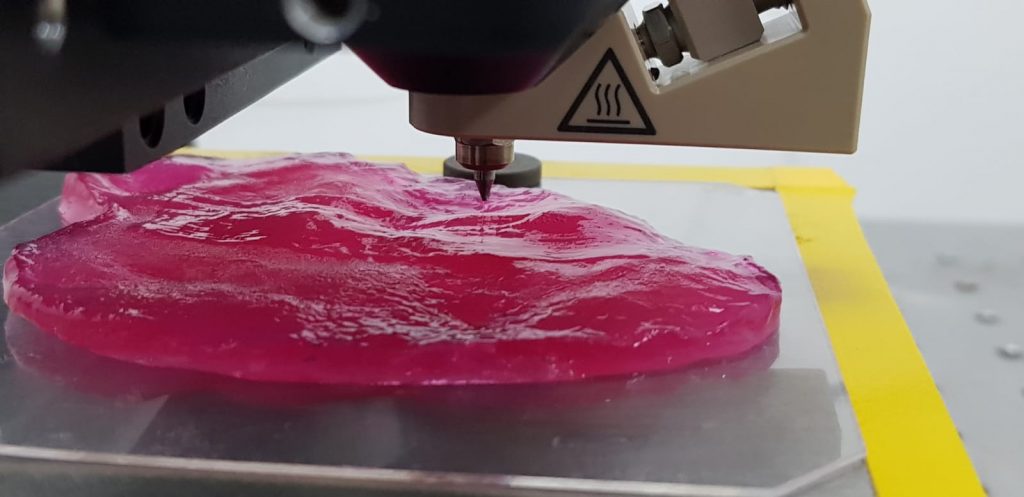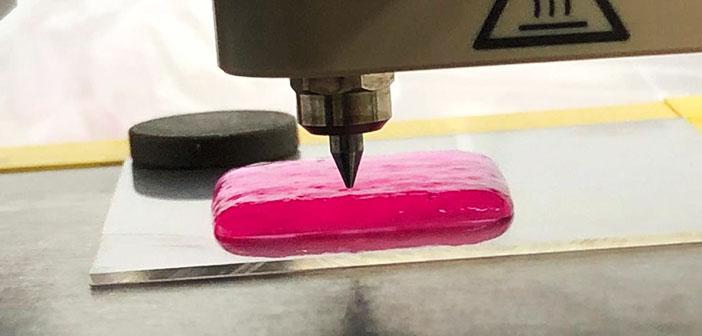MeaTech, an Israel-based developer of edible meat 3D bioprinting technology, has announced a number of key milestones for its business alongside its 2020 financial results.
Since commencing trading on the Tel Aviv Stock Exchange in January 2020, and then the Nasdaq in March 2021, MeaTech has become the first publicly traded company in the US to focus on cultured meat. The Nasdaq listing alone raised $28 million in a public offering of ADSs, in addition to the $15 million raised via several funding rounds throughout 2020.
February 2021 also saw the acquisition of Peace of Meat, a Belgian developer of cultured fat products, for a total of $17.7 million split between cash and equity. MeaTech will use Peace of Meat’s avian-focused technologies to expand its current capabilities, which are predominantly bovine meat-oriented. Future cultured meat products will be aimed at food processing companies looking to diversify their plant-based offerings, with Peace of Meat’s existing management team set to continue leading the avian development process.
Sharon Fima, CEO of MeaTech, states, “We are pleased with our execution throughout 2020. I would like to thank our wonderful management team and employees who worked tirelessly to ensure our continued growth despite a challenging year. The world is looking for more sustainable agriculture practices, and we believe cultured meats – created without slaughtering livestock – can be a significant advancement towards that goal.”

2020 financial results
MeaTech’s end-of-2020 cash position sat at $13.5 million compared to $1.2 million at the end of 2019. The company’s total assets also increased from $1.9 million to $17.4 million over the same period. Due to its early-stage nature, MeaTech does not yet generate any revenue and doesn’t expect to until it has fleshed out a full line of marketable products.
The company’s R&D costs increased from a total of $0.2 million in 2019 to $2.5 million in 2020, owing to its rapid acceleration in product development. Total operating expenses increased from $0.4 million to $18.5 million over the same period. MeaTech posted a net loss of $18.5 million for 2020 ($0.30 per ordinary share), including public listing expenses of $10.2 million.
Fima adds, “The past few months have seen great momentum for MeaTech, and we are very excited about the strategic initiatives we have in place. We look forward to further building MeaTech, establishing ourselves as global leaders and a hub for innovation in the cultured meat industry.”
The benefits of 3D printing cultured meat
MeaTech’s mission is to 3D bioprint lab-based cultured meat that emulates the real thing in every way. The company is currently in the process of developing a working bioprinter that works with stem cells to produce edible meat structures. The technology behind the bioprinter was successfully tested in November 2020, when the company fabricated an edible cultured beef fat structure.
As well as eliminating animal slaughter, the approach is expected to offer significant supply chain benefits to producers, reductions in greenhouse gases, and potential health advantages.
Fima concludes, “With the technology we are creating, we expect to see real meat grown in clean, controlled conditions in just months, instead of the years it takes to produce farm-raised meat. In addition to having the potential to be a more sustainable production process, cultured meat can be produced anywhere on the planet, changing supply chains.”

Israel is a hotspot for food printing startups such as MeaTech, with companies such as Redefine Meat and SavorEat also in the arena. Redefine Meat recently raised $29 million in Series A funding that it plans to use to support the commercial launch of its 3D printed vegan steak product later this year.
Late last year, SavorEat also raised $13 million in its Initial Public Offering (IPO) on the Tel Aviv Stock Exchange, which has valued the company at $51.2 million. The firm’s “robotic chef” uses 3D printing to transform a plant-based formula into cooked products that emulate meat.
Subscribe to the 3D Printing Industry newsletter for the latest news in additive manufacturing. You can also stay connected by following us on Twitter and liking us on Facebook.
Looking for a career in additive manufacturing? Visit 3D Printing Jobs for a selection of roles in the industry.
Featured image shows MeaTech 3D bioprinting a slab of real meat. Photo via MeaTech.



